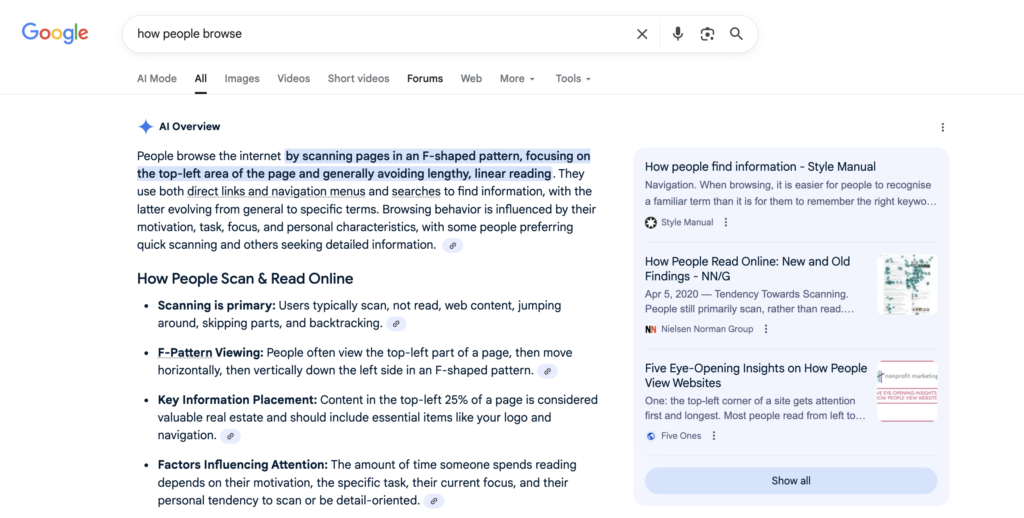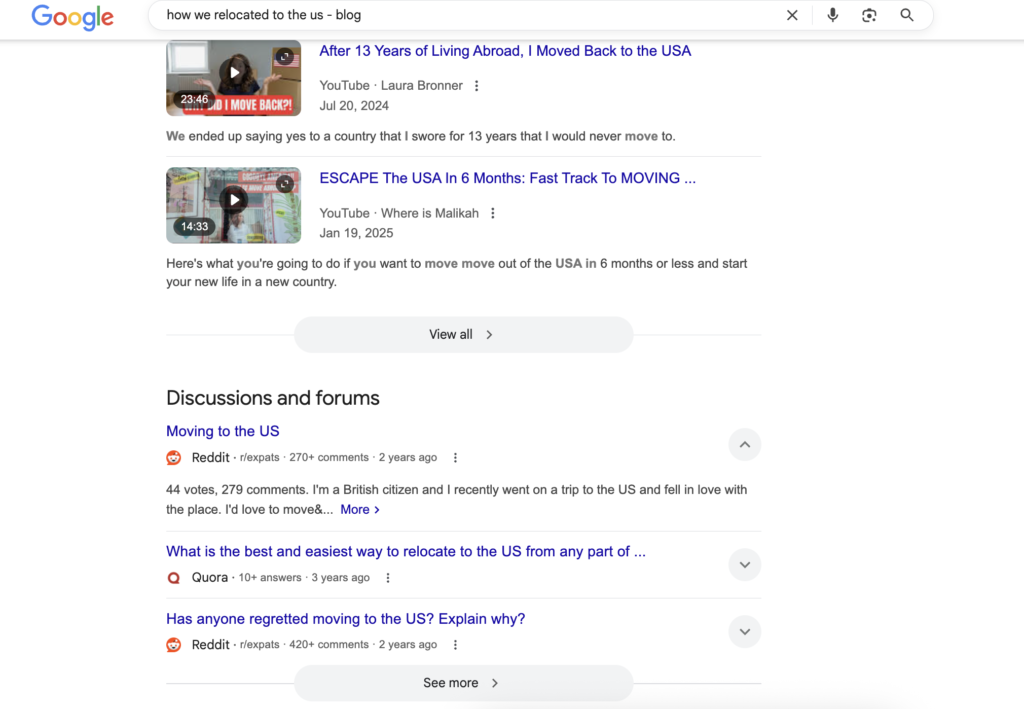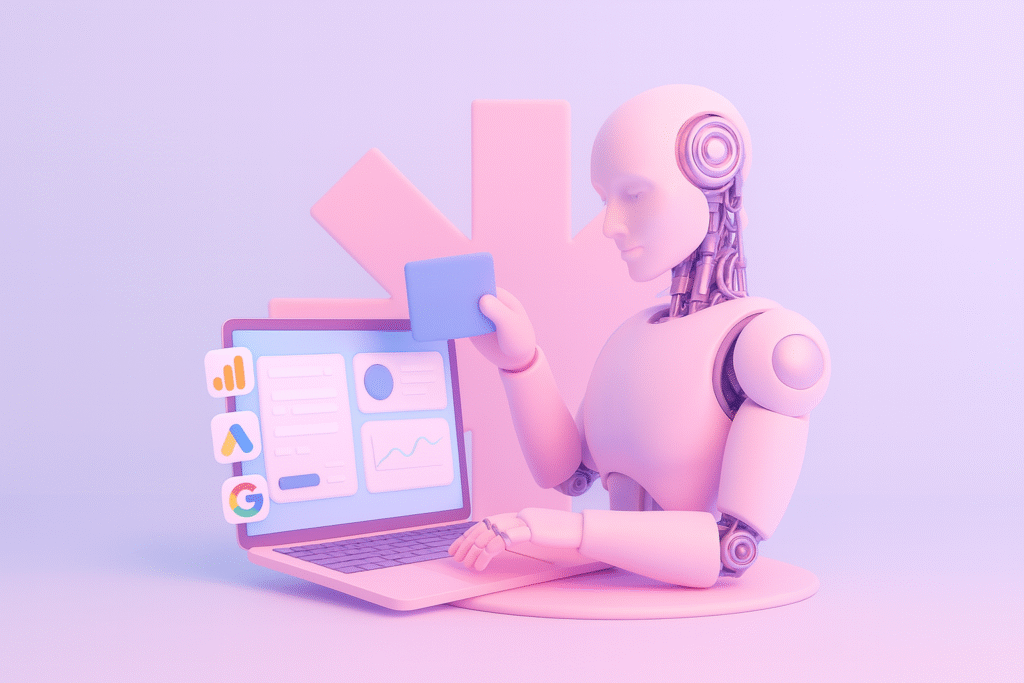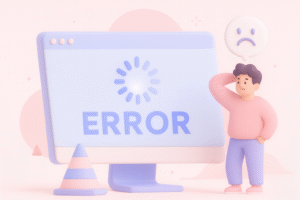Search engine optimisation has always and will always be a moving target.
The way we search today looks nothing like it did ten years ago, and it will look very different again ten years from now.
Each new development, whether it be social media, mobile, or voice search, has been labelled at one time or another as “the end of SEO”.
Now it is artificial intelligence’s turn to wear that crown.
With Google testing generative search experiences and AI tools becoming mainstream, the question many marketers are asking is simple: Will SEO be replaced by AI?
The short answer is no, but that doesn’t mean everything stays the same.
SEO is not disappearing, but it is evolving. To understand the future, we need to look closely at how AI is reshaping the search experience and what that means for businesses, writers, and users.
Is AI Changing How Search Works?
Today, when you type a query into Google, you don’t just see ten blue links.
AI helps interpret intent, pull together snippets, and even draft full summaries at the top of the page. This makes search more conversational, more contextual, and more personal.

For users, this is convenient. Instead of hunting through multiple pages for an answer, they get quick insights in seconds.
For website owners, however, it poses a challenge. If AI can satisfy the query straight away, why would someone need to click through?
This shift has three big consequences for SEO:
- Basic content is less valuable – if an AI can summarise it, users may not need to visit the site.
- Depth and expertise matter more – original thought, lived experience, and unique perspectives cut through.
- UX signals are amplified – search engines pay closer attention to how users interact with a site once they arrive.
What this tells us is clear: surface-level content won’t cut it anymore. To stand out, pages need to deliver experiences that AI alone cannot provide.
Why SEO is Not Going Away
Even with AI at the heart of search, optimisation still matters, as search engines depend on signals of quality, authority, and usability.
To stay ahead, focusing on generative engine optimization can help ensure your content adapts effectively to evolving search engine algorithms.
They still need content creators to produce accurate, engaging, and trustworthy information.
AI can remix knowledge, but it cannot replace human expertise.
Think about Google’s E-E-A-T framework: experience, expertise, authoritativeness, and trustworthiness. These signals are not going away.

If anything, they are more important in an AI-driven search environment.
A reader might skim a machine-generated answer, but when it comes to acting, whether that’s buying a product, booking a service, or trusting health advice, they will look for a reliable source.
SEO remains the practice of making sure your brand is the go-to source.
Human Insight Still Remains Essential
One of the biggest misconceptions is that AI will eventually write all the content worth ranking. While AI can produce text, it cannot live experiences, conduct research, or hold opinions with credibility.
A travel article written by a professional who has actually visited a destination feels different from one pieced together by a machine.

A medical blog authored by a doctor carries authority that AI simply cannot replicate. This is why human insight is irreplaceable.
In fact, some agencies are already focusing on this blend of AI and expertise.
For example, a generative engine optimisation agency can help your business adapt by optimising not just for traditional rankings but also for how AI presents answers.
The goal is to make sure that when AI summarises information, it draws from authoritative, human-led sources.
Optimisation Beyond Keywords
Modern optimisation is about designing journeys, not chasing algorithms. If a user skims an AI answer and then clicks through to your site, what happens next determines whether they stay, subscribe, or convert.
Strong SEO today means:
- You structure content so it delivers quick wins but also invites deeper exploration
- You write in clear, natural language that feels effortless to read
- You use evidence, references, and author bios to build trust
- You design layouts that avoid friction, have no slow load times, no intrusive overlays, and no dead ends
These are not “add-ons” to SEO. They are SEO. Search engines increasingly interpret positive user experiences as proof of quality.
Where AI Can Help… and Where it Can’t
AI is powerful, but it doesn’t cover every angle of SEO. The table below highlights where AI shines and where human expertise remains essential:
| Where AI helps | Where it falls short |
| It can scan for search trends at scale | It still struggles with nuance and tone |
| It can suggest outlines and FAQs | It can’t judge if the content truly flows for readers |
| It can tell you if you have technical gaps in performance | It doesn’t spot when layouts frustrate users |
| It definitely speeds up drafting and ideation | It still lacks empathy, trust, and lived experience |
AI is excellent for handling scale and efficiency, but humans refine the experience. The real strength comes from combining both: using AI to handle the heavy lifting, while people design the clarity, tone, and flow that keep users engaged.
Our Genuine Opinion on the Future of SEO
The future of SEO will feel broader than the past, and it will cover technical foundations, user experience design, content strategy, and brand positioning, all at once.
AI is, no doubt, changing the search results page, but it does not change the underlying fact that people want trustworthy answers.
SEO specialists will spend less time on mechanical keyword tweaks and more time ensuring that content is meaningful, well-structured, and aligned with user intent. Businesses that focus on clarity, transparency, and authority will continue to thrive.
So, will SEO be replaced by AI? No. But SEO will 100% be reshaped by it.
The discipline is moving away from narrow tactics and towards holistic strategies that combine content, UX, and trust.
Search engines are getting smarter, but they are still built for humans, so as long as people value reliable information and true background checks, SEO will remain essential.
The challenge is not whether SEO survives, but how it changes.
And those who use AI while doubling down on authenticity and user experience will be the ones who stay ahead, long-term.









